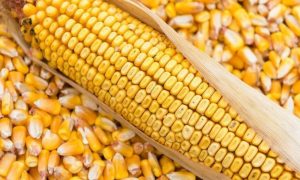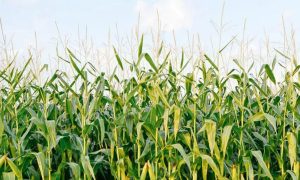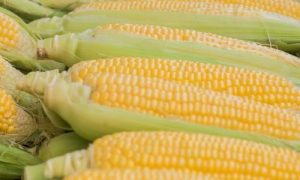A maize mill is helping students, families pay school fees in rural Uganda

A maize mill in a rural community in Uganda is not only bringing community members together, but helping them pay for education for the youngest generation.
At The Tat Sat Community Academy (TaSKA) in rural Kasasa, there are 57 students who live at the school and 63 from the community who live nearby. The school, which opened in February, enrolled 64 girls and 56 boys. Over the next three years, enrollment will grow to over 500 students, with at least 300 boarded on the grounds.
The community partnered with The InteRoots Initiative to develop the project. InteRoots is a Denver, U.S.-based nonprofit working both domestically and internationally on projects that are designed by and sustainable for local communities.
One of the unique characteristics of the Tat Sat Community Academy is that the community has made it affordable for all students. One of the greatest challenges identified by the community in designing this project was that too often school fees are unattainable by Ugandan families, and there is no free, state-sponsored alternative for secondary education.
Through this project, families can process and sell their maize at the project’s local, community-owned, maize mill. The maize mill is integrated with the project’s credit union (SaCCO), which provides financing, account services, and banking services to participating community members and students. The resulting increased income families receive from using the maize mill, as well as the associated financial services of the directly subsidize the cost of education
The total number of member accounts held by community members in the SaCCO is 294 as of March 26, 2023. All employees of the school, the maize mill, and the SaCCO itself, have agreed to not only have accounts in the SaCCO, but to make a monthly minimum deposit of UGX 30,000. Under this structure, the community is able to reinvest in itself since members are then able to access financing through the SaCCO for business ventures, education, or other investments. In its first harvest season, the maize mill processed 14,000 Kgs of grain from Kasasa and nearby communities, and invested in a 10-acre maize growing project within Kasasa for the next harvest season in July 2023. Program leaders expect to process no less than 50,000 Kgs of grain within the next season. The maize mill will have purchased its own truck by the end of the year to collect maize grain from community growers, as well as deliver maize flour for sale at market in the region as well as in the capital where prices are more advantageous, providing access to better returns for farmers and their families.
Besides the school and SaCCO, the project has another pillar: The Institute of Indigenous Cultures and Performing Arts, or ICPA. The ICPA will allow students and community members to keep traditional knowledge alive at the core of community activities through music, dance and other art forms.
The Institute is expected to serve the Kasasa community, the TaSCA student beneficiaries, as well as the wider Kyotera District, Uganda and East Africa at large. It is expected to serve a population of over 20,000 people including students from its service area..
The ICPA will also run a community guest house for TaSCA visitors. The ICPA will be launched at the end of this year with a cultural event including current students and the wider community.
We are grateful and in awe of how the community of Kasasa has come together to make these programs a reality, and are excited to see what the future holds.
















